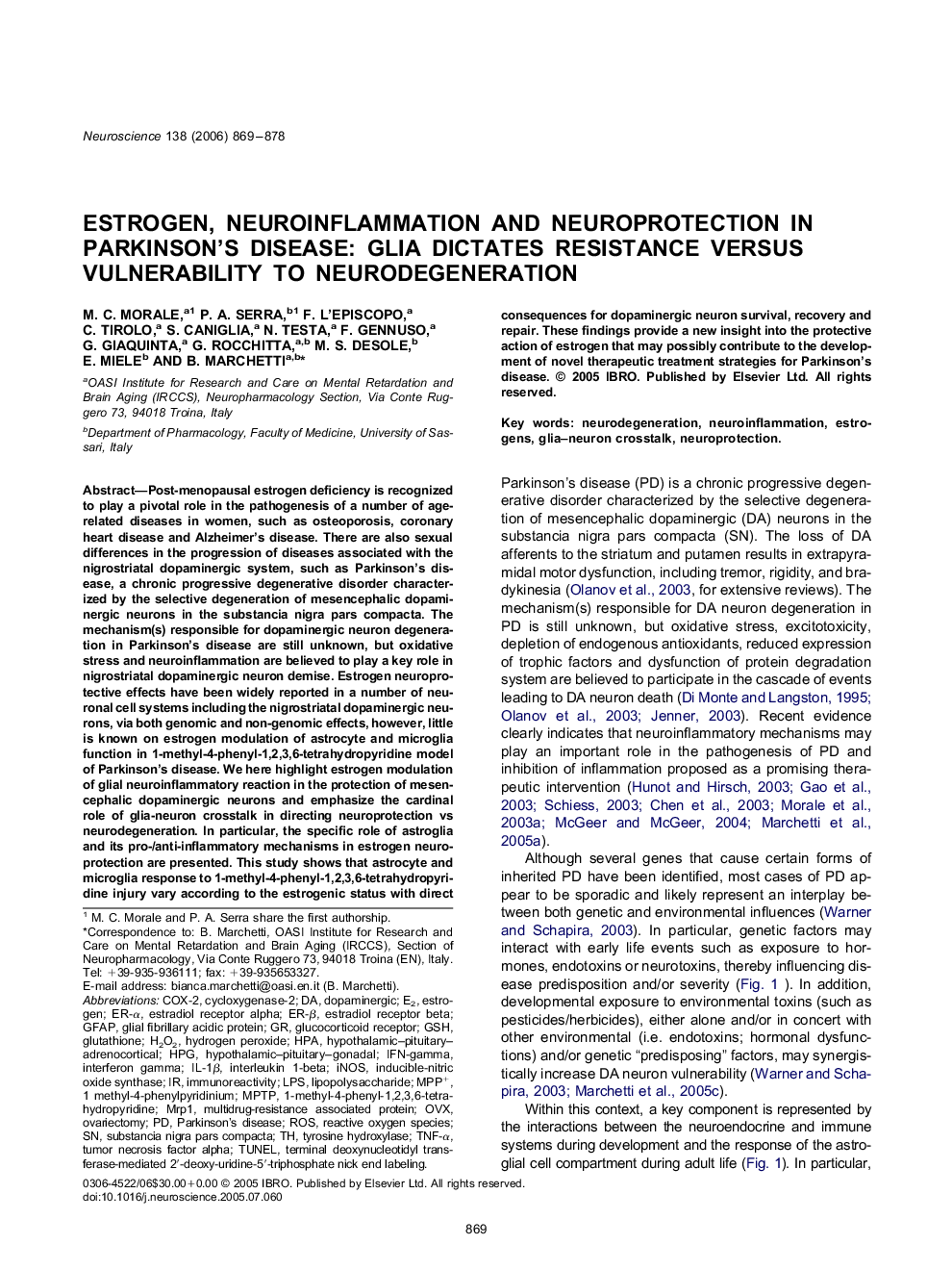| کد مقاله | کد نشریه | سال انتشار | مقاله انگلیسی | نسخه تمام متن |
|---|---|---|---|---|
| 4342054 | 1295854 | 2006 | 10 صفحه PDF | دانلود رایگان |
عنوان انگلیسی مقاله ISI
Estrogen, neuroinflammation and neuroprotection in Parkinson's disease: Glia dictates resistance versus vulnerability to neurodegeneration
دانلود مقاله + سفارش ترجمه
دانلود مقاله ISI انگلیسی
رایگان برای ایرانیان
کلمات کلیدی
موضوعات مرتبط
علوم زیستی و بیوفناوری
علم عصب شناسی
علوم اعصاب (عمومی)
پیش نمایش صفحه اول مقاله

چکیده انگلیسی
Post-menopausal estrogen deficiency is recognized to play a pivotal role in the pathogenesis of a number of age-related diseases in women, such as osteoporosis, coronary heart disease and Alzheimer's disease. There are also sexual differences in the progression of diseases associated with the nigrostriatal dopaminergic system, such as Parkinson's disease, a chronic progressive degenerative disorder characterized by the selective degeneration of mesencephalic dopaminergic neurons in the substancia nigra pars compacta. The mechanism(s) responsible for dopaminergic neuron degeneration in Parkinson's disease are still unknown, but oxidative stress and neuroinflammation are believed to play a key role in nigrostriatal dopaminergic neuron demise. Estrogen neuroprotective effects have been widely reported in a number of neuronal cell systems including the nigrostriatal dopaminergic neurons, via both genomic and non-genomic effects, however, little is known on estrogen modulation of astrocyte and microglia function in 1-methyl-4-phenyl-1,2,3,6-tetrahydropyridine model of Parkinson's disease. We here highlight estrogen modulation of glial neuroinflammatory reaction in the protection of mesencephalic dopaminergic neurons and emphasize the cardinal role of glia-neuron crosstalk in directing neuroprotection vs neurodegeneration. In particular, the specific role of astroglia and its pro-/anti-inflammatory mechanisms in estrogen neuroprotection are presented. This study shows that astrocyte and microglia response to 1-methyl-4-phenyl-1,2,3,6-tetrahydropyridine injury vary according to the estrogenic status with direct consequences for dopaminergic neuron survival, recovery and repair. These findings provide a new insight into the protective action of estrogen that may possibly contribute to the development of novel therapeutic treatment strategies for Parkinson's disease.
ناشر
Database: Elsevier - ScienceDirect (ساینس دایرکت)
Journal: Neuroscience - Volume 138, Issue 3, 27 March 2006, Pages 869-878
Journal: Neuroscience - Volume 138, Issue 3, 27 March 2006, Pages 869-878
نویسندگان
M.C. Morale, P.A. Serra, F. L'Episcopo, C. Tirolo, S. Caniglia, N. Testa, F. Gennuso, G. Giaquinta, G. Rocchitta, M.S. Desole, E. Miele, B. Marchetti,